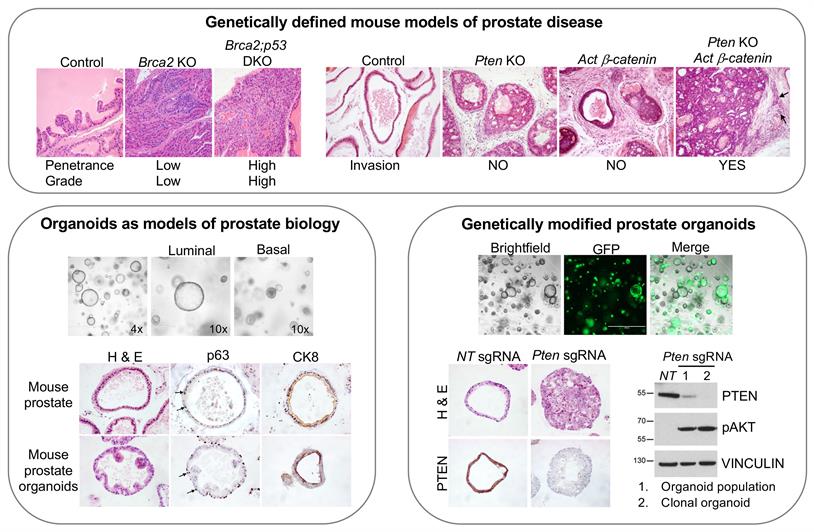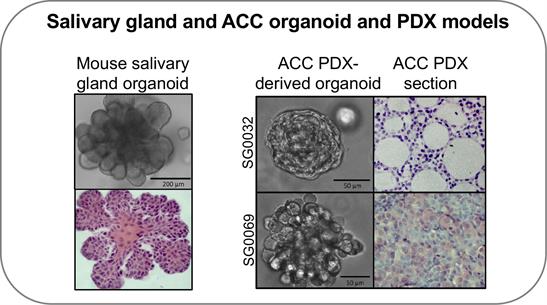Prostate Cancer
We have a long standing interest in the molecular and cellular pathways that contribute to organ development and tumourigenesis in the prostate. We use functional studies to understand how tumours develop and progress and to provide insight on drug target identification and therapeutic sensitivities that help improve patient therapy. Pathways that we are focusing on include Pi3Kinase signalling, WNT signalling, DNA damage response and transcription factors such as SOX9.
For our functional and therapy studies we use genetically modified mouse models and patient derived xenograft tumours, which we generate in the Tumour Modelling Facility in collaboration with Johann de Bono’s lab. More recently, with funding from Prostate Cancer UK, we are setting up a pipeline to generate genetically modified organoids derived from human and mouse prostate.
Using CRISPR based technology we are generating genetic models that mimic the aberrations found in patient samples. These models are characterised phenotypically and are used to investigate drug sensitivities in vitro as well as in vivo after implantation in the mouse prostate.

Adenoid Cystic Carcinoma
Salivary gland adenoid cystic carcinoma (SACC) is a rare cancer with low survival rates and frequent metastasis with currently no effective systemic treatment available, therefore representing an area of high unmet need. Studies in SACC have been hampered by the lack of cell lines containing the genomic aberrations found in patients, such as the translocations involving MYB and MYBL1.
In collaboration with Kevin Harrington, we are generating patient derived xenografts from SACC biopsies in the Tumour Modelling Facility. We are using these PDXs to identify novel drug therapies for SACC patients and to develop in vitro models such as 3D organoid cultures for mechanistic studies. In a complementary approach, we are developing CRISPR based methodologies to genetically modify normal salivary gland organoids to mimic genetic aberrations found in SACC such as the MYB-NFIB translocation.

Adrenal cortical cancer
One focus of our work is on the pathways that contribute to adrenal cortex development and their involvement in the formation of adrenocortical carcinoma (ACC), a rare and aggressive cancer. We use genetically modified mice for these studies and have generated transgenic mouse lines that express Cre recombinase in specific steroid producing cells. Recently we have investigated the involvement of HOX genes in ACC and shown that members of this family of transcription factors are good targets for therapeutic studies.